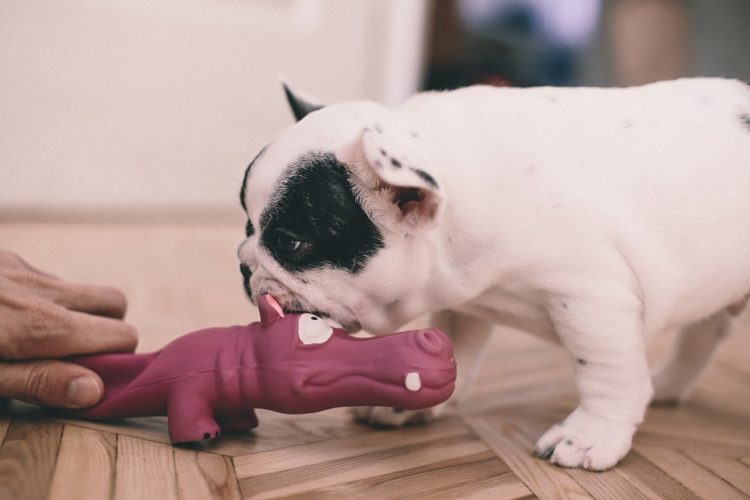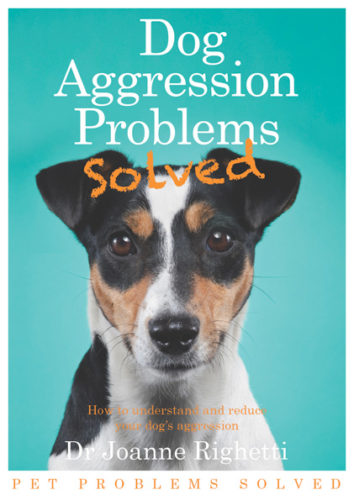Understanding Resource Guarding Aggression in Dogs
Understanding resource guarding aggression in dogs: Summary
- Some dogs guard resources that are valuable to them – food, toys, space or even you! This is know as resource guarding aggression.
- Management of resource guarding aggression in dogs is important. Supervising al interactions between dogs and people is vital.
- Long term solutions involve introducing your dog to the concept of unlimited resources or removing the coveted resources altogether. Seek professional help.
Why dogs resource guard
Some dogs display what we call resource guarding aggression and will defend their right to have desirable items such as food, sofas or even you! Dog aggression is rarely pleasant to live with.
Reason to fight: Limited resources
When resources are in short supply, demand increases. Dogs tend to value resources that they need to survive. Resources such as food, shelter and companionship are very valuable commodities in the animal world and most animals will do all they can to secure these resources and to hold on to them once they have them.
Most dogs that live in modern, human households want for nothing. They have all the food they could ever wish for – and more. With access to sofas, beds and any number of luxurious shelters, they have our company and perhaps the companionship of other members of their species and other domesticated animals too.
This does not stop them from coveting resources. The innate desire to secure life-preserving possessions and relationships remains strong. Perceived precious items are worth resource guarding.
Most dogs are generous in their sharing capacity. They allow their humans to share their resting spots – usually our sofas! They do not flinch when our hand comes near their food bowl. A small number of dogs, however, refuse to share their resources. Often there will be one particular resource that they are particularly motivated to guard.

Common items that dogs guard
1. Dogs who Guard Food
Food. especially coveted items that are not readily available, such as bones, treats and chews are commonly guarded. The dog will growl when the threat approaches or even bite.
Food-related aggression is more common in dogs that:
– live in multi-dog households, perhaps not surprisingly, as competition for food may be more severe.
– dogs that are acquired when older, perhaps due to previous competition or to a reduced food supply
– dogs that are fed from the dining table may also be more likely to covet and protect this limited resource.
– households with women are also more likely to have food guarding canines.
2. Dogs who Guard Toys
Toys, perhaps those associated with food such as treat balls but also other items specific to their likes and activities, are resource guarded by some dogs. Some dogs will guard tennis balls because they enjoy fetching them and do not want any other dog to take them.
Other objects may also be guarded. Some of these may have no perceivable value in owner’s eyes but the dog still covets them. An old sock, for instance, may be previous to your dog, although useless to you.
3. Dogs who Guard Space
Spaces may be resource guarded by some dogs, especially areas that are associated with particular comforts like sofas or beds or particular spots such as gates or doorways. Dogs may guard one particular spot or an entire area, a behaviour generally referred to as territoriality.
4. Dogs who Guard People
Some dogs show resource guarding towards people, especially owners who the dog is attached to, when other, potentially threatening people or dogs approach.
Dogs that exhibit resource-based aggression within the home, usually directed towards their owners, are sometimes referred to as dominant aggressive. It has been thought that these dogs were trying to increase their status levels and become top dog. This has now fallen out of favour as a theory of why some dogs show aggression towards their humans. Instead, dogs are more likely to be aggressive towards their owners due to resource guarding, due to fear or due to redirected aggression.
Multi-dog households and resource guarding behaviour
Dogs in multi-dog households may be more likely to be experience competition for resources from the other dogs. One dog may control all resources and the others have to wait their turn to eat or receive human attention.
Contrary to popular belief, there is little evidence that dogs in multi-dog households form hierarchies. Instead of one ‘top dog’ controlling all resources, dogs may partition their resources according to their own particular desires. One dog may have priority over sitting next to us while another is first to be fed. As always, we have a lot more to learn about canine behaviour.
Read more at Dr Jo Righetti’s book Dog Aggression Problems Solved
How to prevent resource guarding behaviour in dogs
As always, with behaviour issues, prevention is better than cure. You can prevent resource guarding by always having an appropriate amount of resources available. For instance, having enough food for all your puppies and dogs is important, otherwise one may learn to guard food from the others.
Do no take items away from your dog that your dog may covet. This may set them up to guard the resource in future. For instance, if you take your dog’s food dish away while they are eating, they may very well start guarding it next time you try to do that. You may do the same, if you are hungry and someone tries to steal your food!
How to resolve resource guarding issues
Often, if your dog guards a particular item, it is best not to have this item around your dog or your home. Substitute the items with some other enrichment for your dog.
If your dog guards items, it may help to make this resource more plentiful.
If your dog guards tennis balls, for instance, having one hundred tennis balls makes it impossible to guard them all. Some dogs can still guard many, many balls, however, so you need to judge this accordingly and seek further help.
It is always worth consulting with a dog trainer or an animal behaviourist if this issue seems too difficult to handle on your own, you are not seeing results when you try or if you are in any potential danger.
Frequently asked questions about resource guarding behaviour
Why does my dog guards bones?
Bones are a valuable resource to your dog. They are probably the tastiest item on their menu! You could try giving bones a lot more often, then they may lose their appeal. Often it is easiest to simply not give bones (especially if anyone is in danger from your dog!).
Give your dog other ways of having fun with food, such as delivering it via food-releasing toys to hiding or scattering it around.
Can cats resource guard?
Some cats will guard their items, such as food, from other cats, dogs or even people. Make sure they have a secure spot where they feel safe and do not need to guard.
Why has my dog suddenly become aggressive?
Read our info on aggressive behaviour in dogs. It would be worth having a vet check, as sudden changes in behaviour are often linked to medical issues.
About the author: Dr Jo Righetti
Dr Jo Righetti is an animal behaviourist, helping people with pets. With a PhD in behaviour, a diploma in counselling and over 20 years experience in business Pet Problems Solved, Dr Jo understand pets and communicates here knowledge in a motivational manner.
